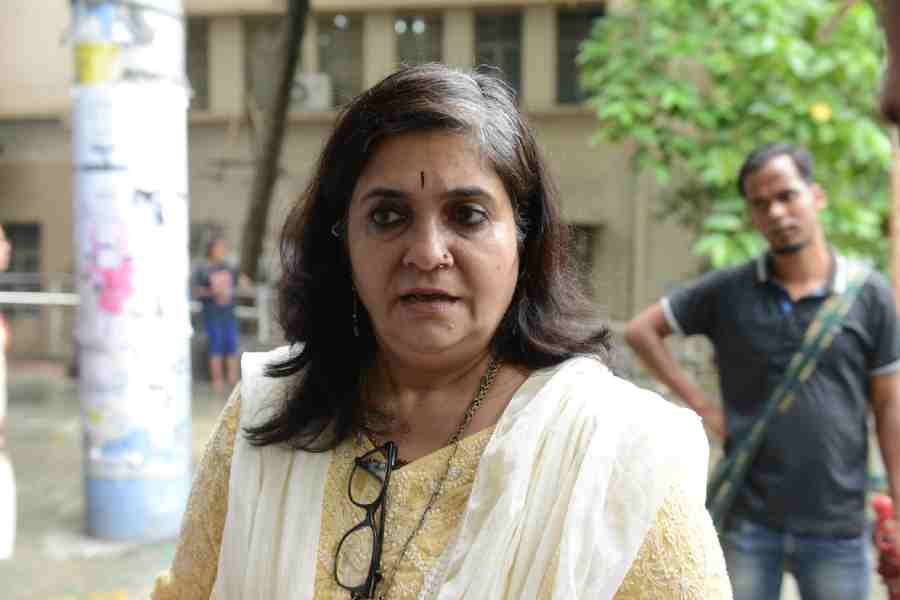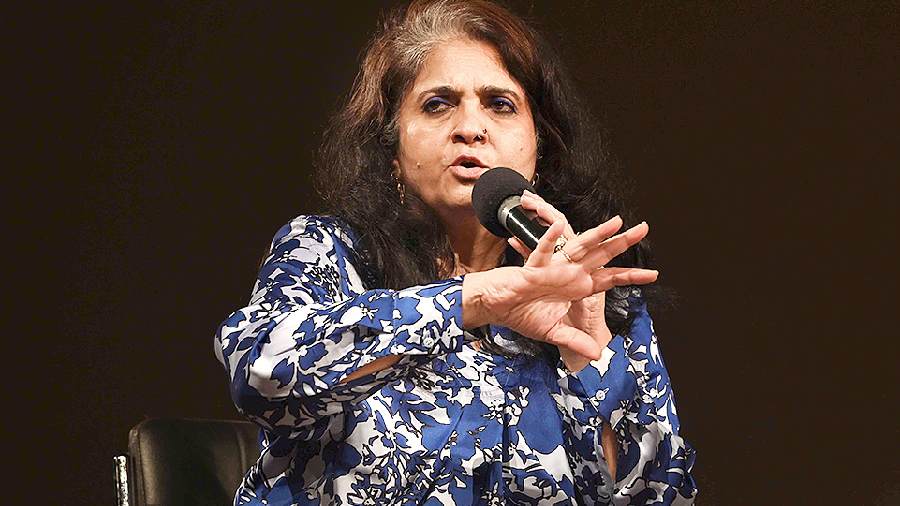Rights defender Teesta Setalvad, a trenchant critic of the Narendra Modi-led Gujarat government’s role during the 2002 riots, was honoured with an empty chair representing her at the 55th International Writers for Peace Committee Meeting in the Slovenian town of Bled this week.
PEN International, a global free speech watchdog, organised the event.
PEN International has a tradition of honouring writers who are in prison, missing or restricted from travelling with empty chairs at its programmes.
“I am honoured and I feel a camaraderie with the six other writers and defenders who were also represented by empty chairs,” Setalvad, who has had to surrender her passport as a bail condition in a case in she was arrested last year, told The Telegraph.
According to the book PEN International: An Illustrated History, author and free speech champion Salman Rushdie — himself driven into hiding and subjected to a knife attack because of his writings — had a hand in the tradition of the empty chair taking shape.
Setalvad said: “It is a huge moment for us at the Citizens for Justice and Peace (an NGO she helps run), our teams and communities on (the) ground, especially given the fact that I have faced such constant targeting and slander by the most powerful.”
The citation from PEN International describes Setalvad as a “writer, journalist, and human rights defender” and says: “On 25 June 2022, Gujarat anti-terror police detained Setalvad at her home in Mumbai, the capital of the neighbouring state of Maharashtra, on allegations of ‘criminal conspiracy’ and ‘forging evidence’ as part of her efforts to seek government accountability for the 2002 Gujarat Riots, a period of inter-communal violence that led to the deaths of hundreds of Indian citizens.”
Setalvad received bail from the Supreme Court in September.
“Just one day before Setalvad’s detention, on 24 June the Supreme Court rejected a plea submitted by Setalvad and co-petitioner Zakia Jafri, whose husband, the former parliamentarian Ehsan Jafri, was killed during the riots,” the citation adds.
“The plea sought to reopen an investigation into the potential involvement of local government officials in the violence.”
PEN International board member Salil Tripathi told this newspaper: “We had seven sessions in Bled, hence seven chairs, and the empty chair is always a writer on whose case PEN is working, who we would like to be free and able to join us at the meeting, but whose freedoms are curtailed either because they’re missing, in jail, or not allowed to travel by the state. The chair is kept empty to mark their absence.”
PEN International: An Illustrated History says: “The ceremony of the empty chair was started by English PEN and Canadian PEN and soon thereafter became a tradition after Salman Rushdie, as the keynote speaker in Barcelona at the 2004 Writers in Prison Conference, presented the empty chair.
“Today, hundreds of PEN meetings across the globe are chaired by imprisoned writers. The Swedish Academy used the ceremony of the empty chair when the writer Liu Xiaobo, leader of the Independent Chinese PEN Centre, was awarded the Nobel Peace Prize.”
The Indians recently honoured in this manner at various PEN events include Telugu litterateur P. Varavara Rao and Delhi University academic Hany Babu MT, both accused in the Elgaar Parishad-Maoist links terror case.
The six others honoured at the Bled meeting with empty chairs were Ales Bialiatski (Belarus), Galal el-Behairy (Egypt), Fessehaye “Joshua” Yohannes (Eritrea), Jose Ruben Zamora (Guatemala), Volodymyr Vakulenko (Ukraine), and Julian Assange (Australia) who is in jail in the UK.












